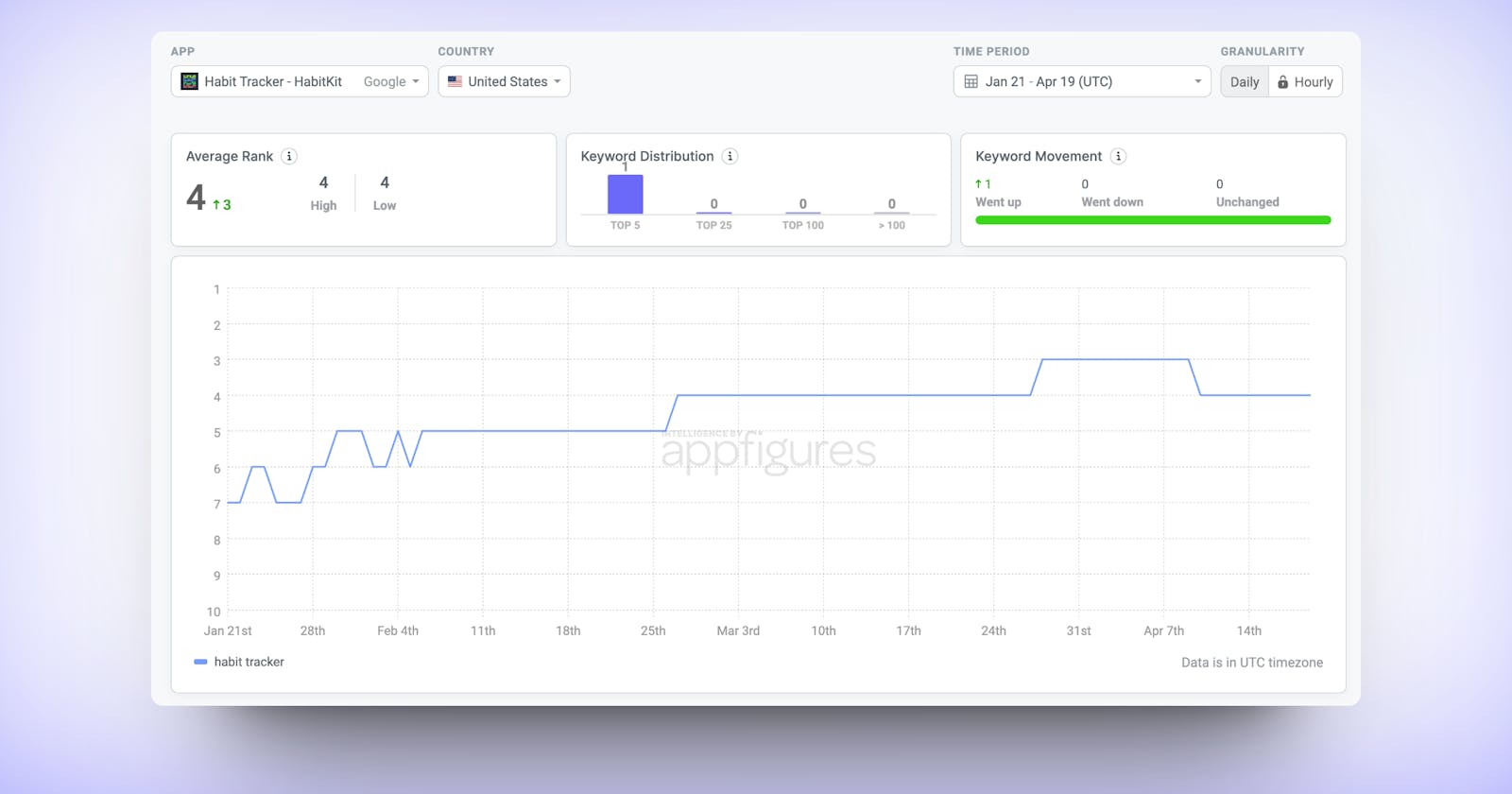Let's talk about ASO (App Store Optimization) this week. It actually started with a really pleasant surprise. After weeks of no big changes, the ranking of my app HabitKit in the App Store started to move again. Luckily, this time it moved in the right direction: Up ⬆️
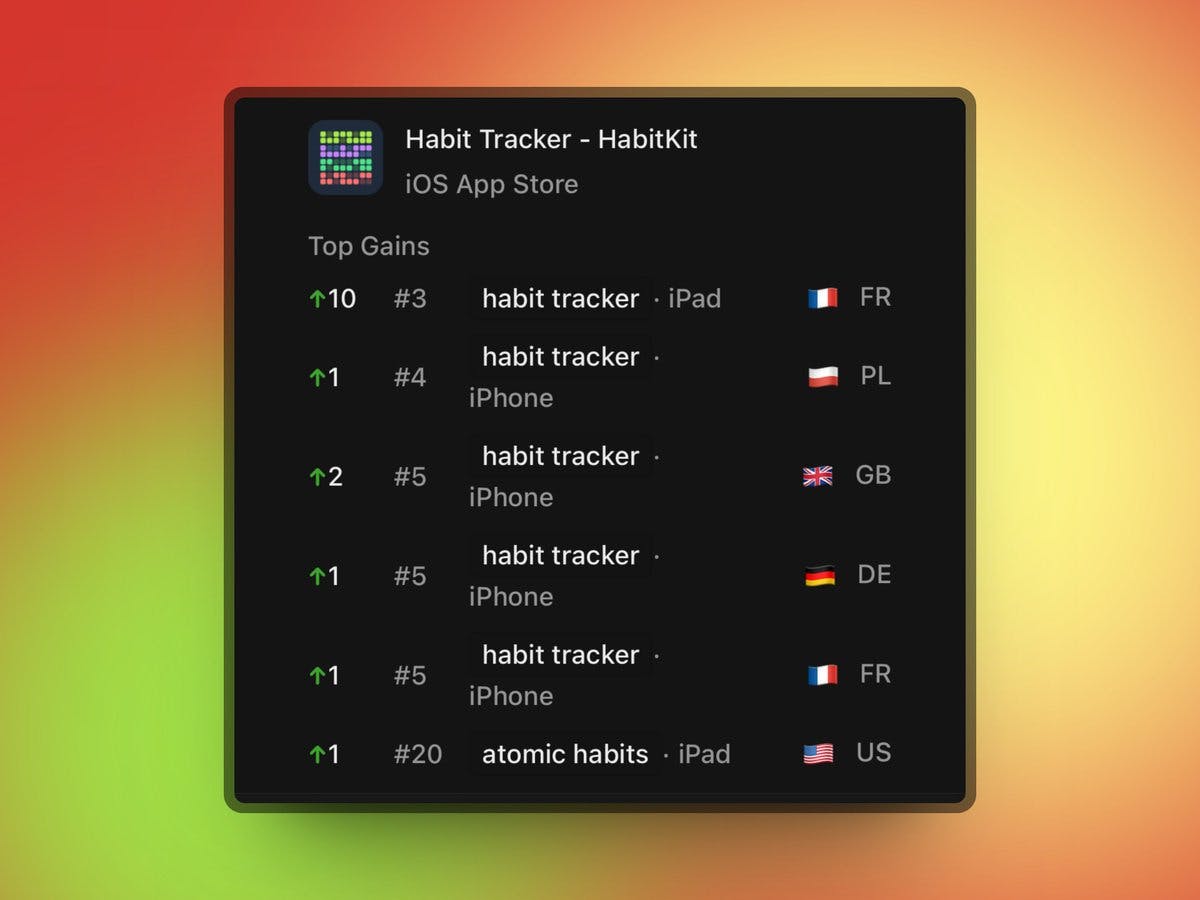
As you can see in the image above, I've made progress in countries like Poland, Great Britain, Germany and France for the keyword "habit tracker". This is one of the most important (if not THE absolute best) keywords that a habit tracking app can rank for. It's especially great that I advanced to the top 5 results, because most people usually don't scroll very far on the search page. Many potential users just look at the first five apps and then quickly decide on the most convincing one.
Below is HabitKit's ranking history of the last three months in the UK App Store. At the start of this month, it looked really bad. There even were a couple of days where the app didn't rank at all for this keyword. Scary situation, because that's a huge market for me and losing it would mean a big revenue decrease. I'm glad that it's finally back in the top 5!
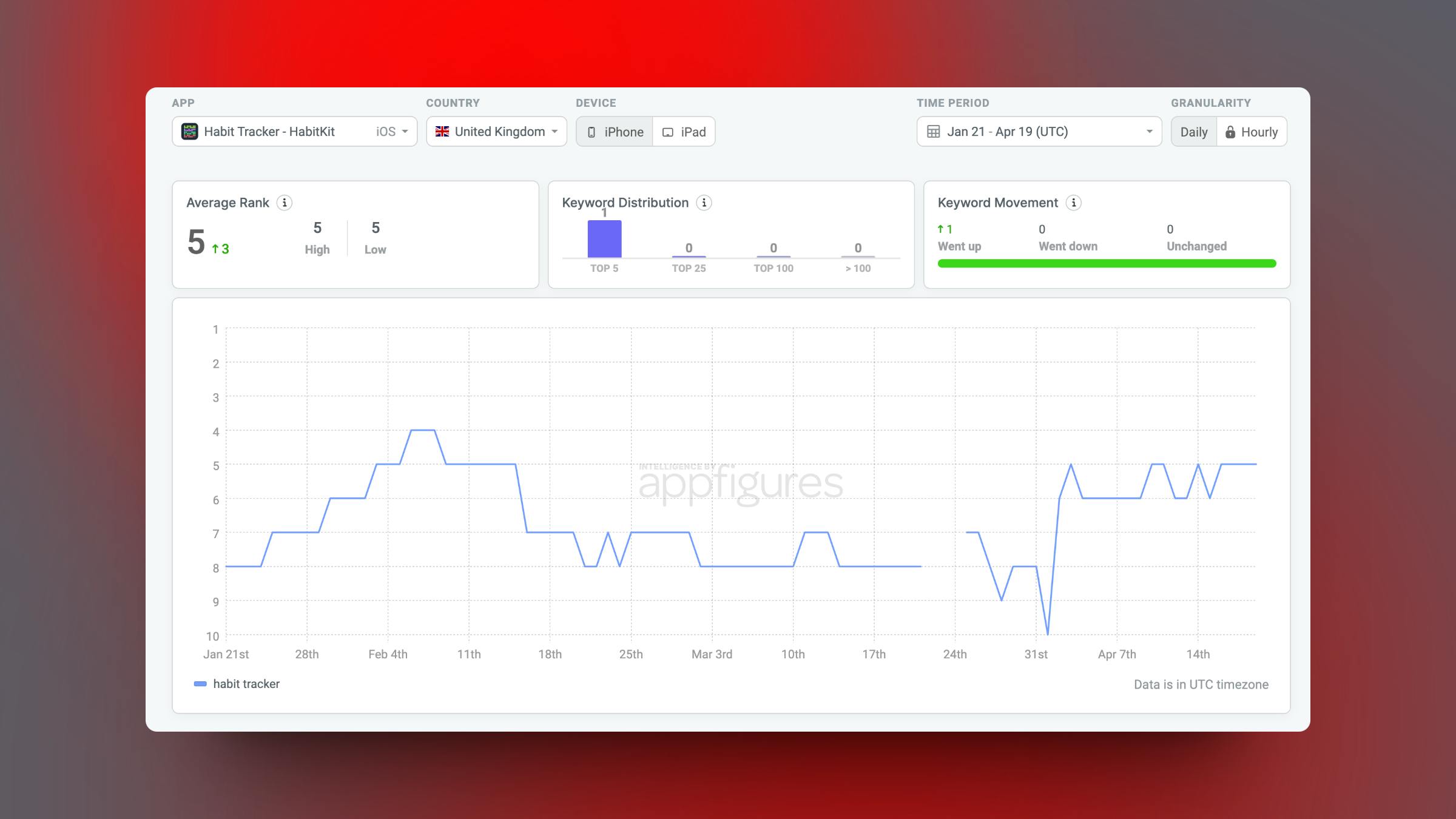
Ranking != Effort
What's cool about the recent changes: I didn't have to do anything to achieve this. I actually haven't updated the app's metadata in a long time. I think the last update was roughly 6 months ago and I just changed the order of some keywords. I always tell myself: Never change a running system. I've got a great ranking and lots of organic downloads and revenue. Why should I conduct risky ASO experiments that will probably tank the ranking of my app without having the confidence that it goes back up again after reversing the changes?
Let's say you're doing some ASO experiments for your app: You change a couple of keywords and the app title in the US App Store. After a couple of days you notice that you've dropped in the ranking. I always ask myself: What do you do in this case? Of course, to be absolute sure that the changes weren't great you would have to wait at least a couple of days. But after that, do you just revert it back to the old state? If yes, does your ranking restore to its' old state? There is no guarantee for that and it could be that you've permanently damaged your app's organic reach.
The only country I'm currently open to conduct some experiments in is the US App Store. For some reason, even after 1.5 years of developing HabitKit I just started to reach the top 50 for the keyword "habit tracker". But I'm actually not sure what else to add. "Habit Tracker - HabitKit" is literally the title of the app. At least I'm ranking for the least popular (but still great) keywords "atomic habits" at the second position right now.
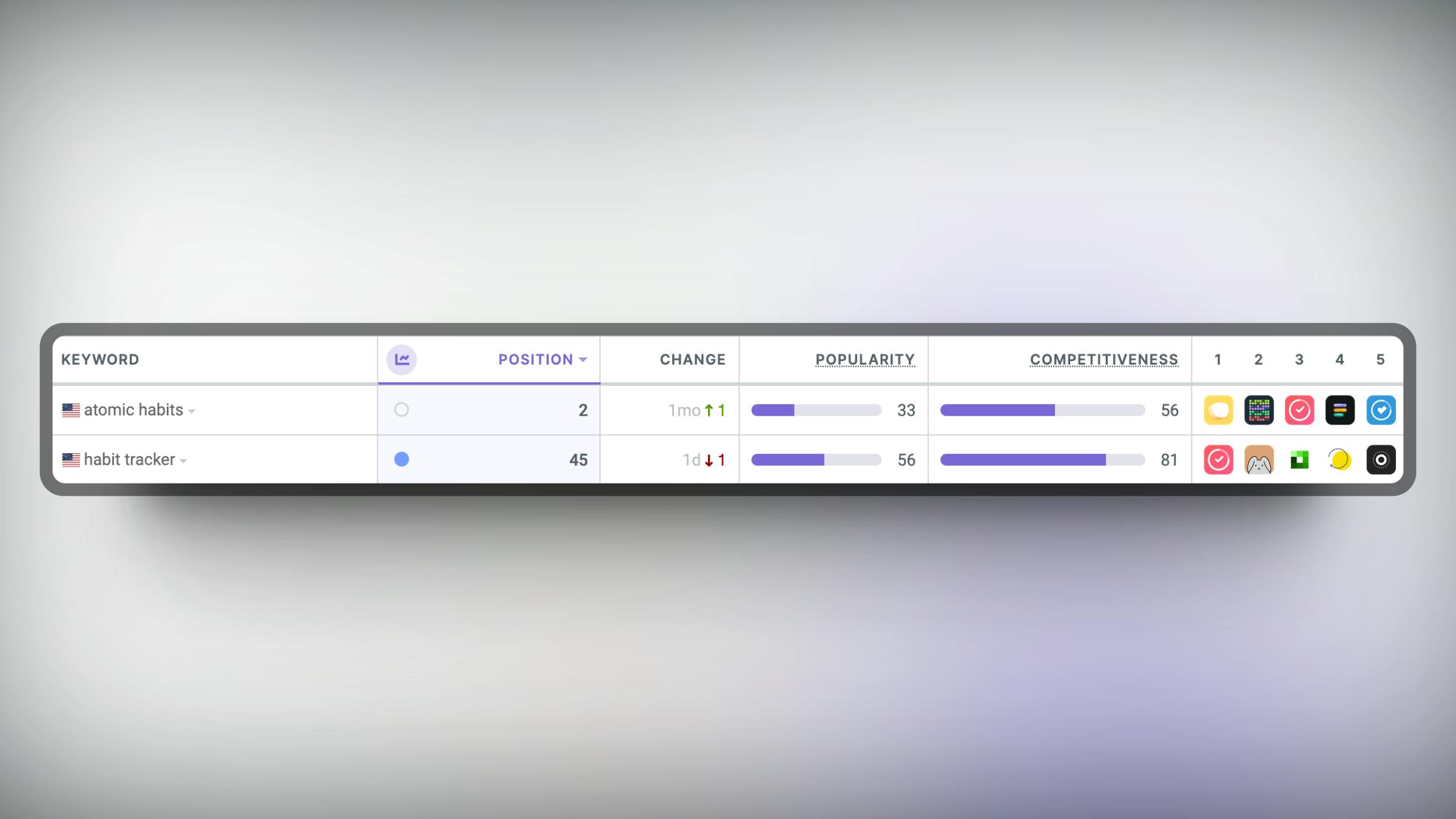
Google Play Optimization
I have a confession to make: I never researched the best way to structure your meta data on Google Play. In 1.5 years of HabitKit's existence I haven't updated it's store listing even once. Still, through continuously shipping feature updates and collecting many reviews/rating I managed to reach the top 3 of the US Google Play store. That's a crazy amount of organic reach!
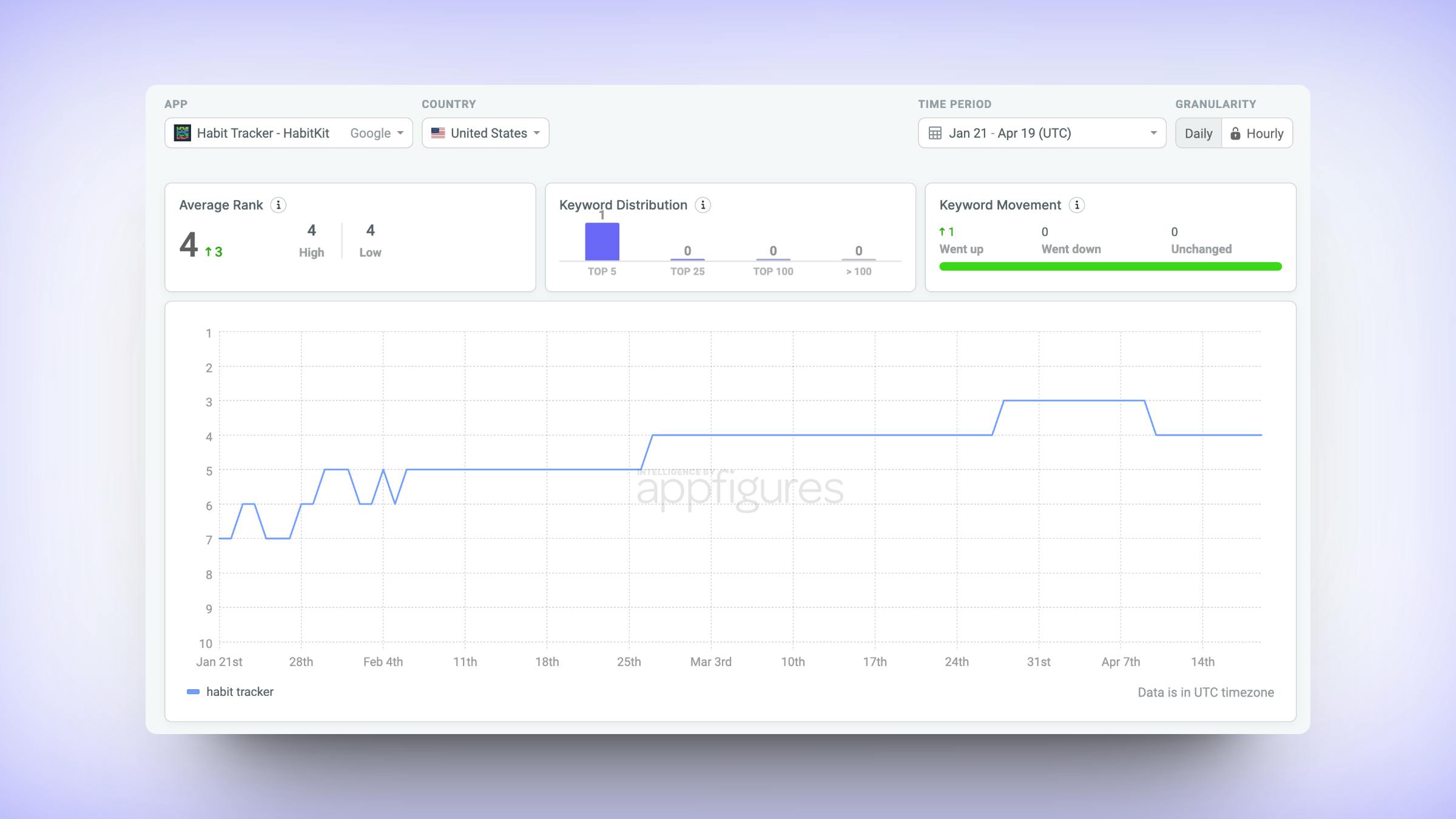
Conclusion
So, here are my two potentially unpopular and highly-opinionated takes on ASO:
People tend to overestimate ASO. You can't fix your app's reach with it if the value proposition is skewed.
You mostly should know the basics of ASO for the sake of not making any grave mistakes (which will rob you of the chance to rank sometime in the future).
Nobody knows exactly what's going on in the App Store search algorithm. Don't let people make you believe that they can make your app work by just doing a proper amount of ASO.
That's it for this week, see you in the next one!

